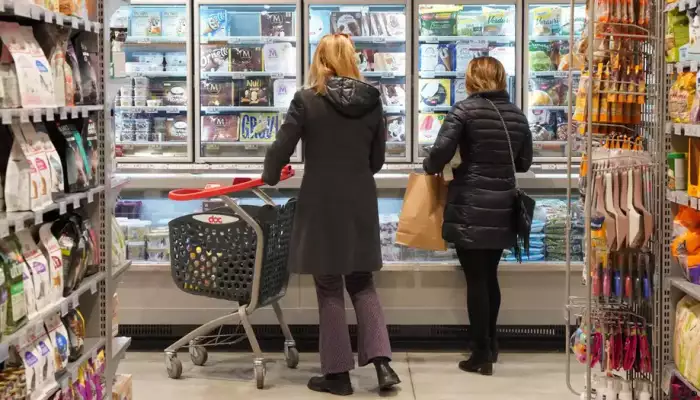
Brussels: Consumer prices across the 20-nation single currency bloc nudged up by an annual rate of 4.3% in September, according to data published by Eurostat — down from an increase of 5.2% in August.
While the figure remains well above the European Central Bank's target of keeping inflation below 2%, it will spur hopes that the bank might now pause its cycle of hiking interest rates.
Core inflation — which does not include more volatile energy, food, alcohol and tobacco prices — also slowed to 4.5% in September from 5.3% in August.
Energy prices in the Eurozone dipped further, falling by 4.7% on the back of a drop of 3.3% the previous month.
While the rate of growth of food and drink prices slowed down, it was still high at 8.8% for September compared with 9.7% percent in August, Eurostat said.
Europe's biggest economy, Germany performed better than previous months, with inflation slowing to 4.3% in September compared with 6.4% in August.
The fall in overall consumer inflation was even higher than had been predicted by analysts from the financial data firm FactSet, which foresaw it slowing to 4.5%.
Jack Allen-Reynolds, deputy chief eurozone economist at research business Capital Economics, said the overall inflation rate was predicted to sink to 3.5% by the end of the year.
Consumer prices across the 20-nation single currency bloc nudged up by an annual rate of 4.3% in September, according to data published by Eurostat — down from an increase of 5.2% in August.
While the figure remains well above the European Central Bank's target of keeping inflation below 2%, it will spur hopes that the bank might now pause its cycle of hiking interest rates.
Core inflation — which does not include more volatile energy, food, alcohol and tobacco prices — also slowed to 4.5% in September from 5.3% in August.
Energy prices in the Eurozone dipped further, falling by 4.7% on the back of a drop of 3.3% the previous month.
While the rate of growth of food and drink prices slowed down, it was still high at 8.8% for September compared with 9.7% percent in August, Eurostat said.
Europe's biggest economy, Germany performed better than previous months, with inflation slowing to 4.3% in September compared with 6.4% in August.
The fall in overall consumer inflation was even higher than had been predicted by analysts from the financial data firm FactSet, which foresaw it slowing to 4.5%.
Jack Allen-Reynolds, deputy chief eurozone economist at research business Capital Economics, said the overall inflation rate was predicted to sink to 3.5% by the end of the year.